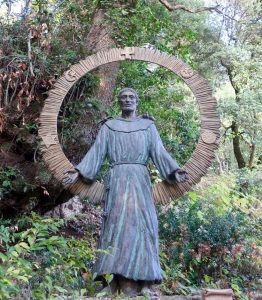Contemplation
To contemplate is to go deep in search of the divine, to gaze with the eyes of the heart. Contemplative spirituality was once known as mysticism. The word mysticism was an attempt to convey the sense that humanity cannot fully know the divine, as the divine is universal ‘mystery’. Over time, the term contemplative spirituality emerged incorporating a depth and breath of practices transcending any one tradition. Both terms portray an experiential rather than intellectual spirituality.
Contemplative spirituality is a way of life, not a system of belief. While it engages all the sense and faculties, it draws most from the inner centre of being we might call the heart.
Pace engages a range of contemplative practices, journeying together along the path.
Pace embraces:
- Meditation
- Nature walks and reflections
- Centring prayer
- Yoga
- Lectio divina
- Online Education
- Podcasts
- Pilgrimages
- Formation
- Intentional Hospitality
- Retreats
- Shared prayer and worship
- Daily Offices (e.g. Ignatian, Benedictine, Franciscan)
- Spiritual Direction
Action
A contemplative life is not static or stationary. Daily contemplative practices envelope one in an awareness of the presence of the divine. This presence calls us forward to action. A contemplative life is the seedbed for creative and compassionate service to others and our world.
Pace’s action in the world is shaped by the passions and gifts of our community members. Pace is not prescriptive here, but rather enabling. Our members’ most often offer works of reconciliation, seeking to bring peace and wholeness through acts of generous hospitality, deep listening, inclusive welcome and open conversation.
Pace members are engaged in a variety of social, political and ecological activities at a local, national and international level through service with likeminded organisations and community groups. They all, in some way, serve as an outpouring of contemplative spirituality bringing wholeness and healing to the environment, the poor, the marginalised. This includes multi-faith dialogue, facilitating community discussion forums and community organising. How might you be called to act?
Pace’s Virtues, Values and Vision form the heart of our shared identity and practice. They are a gentle guide and centering energy as we travel this path of contemplation and action.


